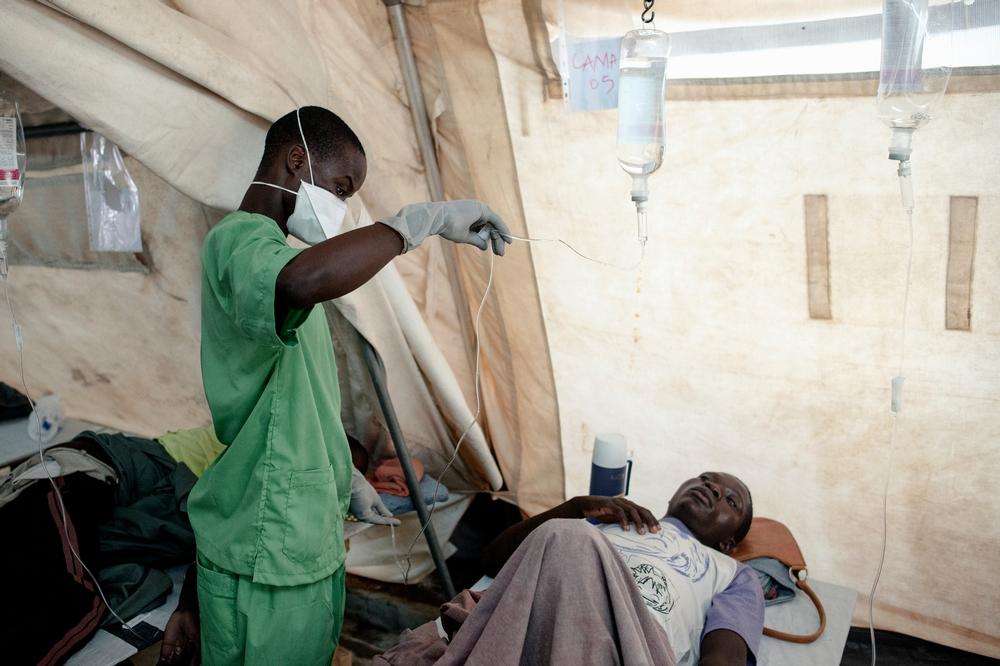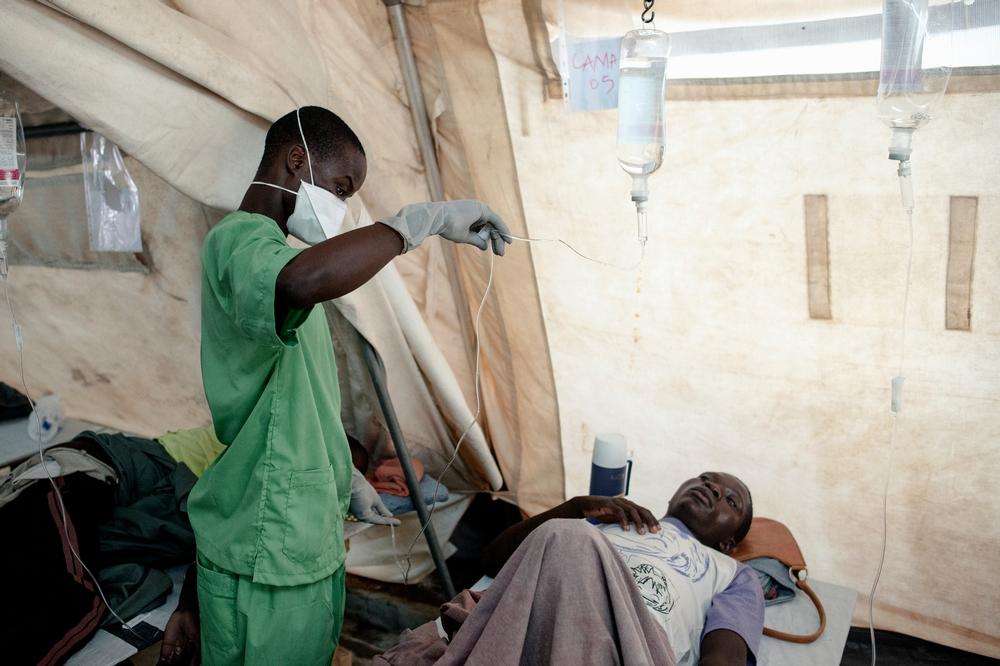Over the past six weeks cholera has swept across Mozambique, killing 46 people and affecting over 5,000, according to official statistics. The waterborne bacterial disease affects people who drink, cook, or prepare food with contaminated water. Outbreaks have been officially declared in five of the country’s eleven provinces, with a current hotspot located in Tete province, where more than half of the total cases so far have been recorded. Doctors Without Borders/Médecins Sans Frontières (MSF) is the main medical actor supporting health authorities in Mozambique, assisting with cholera case management; health staff, including rapid response teams for surges in new cases; community education; and water and sanitation activities in affected areas.
Six weeks after its appearance the disease is continuing to spread, though its progress has slowed. MSF is running three cholera treatment centers with a combined capacity of 350 beds, in addition to providing support to three smaller treatment units opened last week. In the city of Moatize, in Tete province, the outbreak seems to have been brought under control, with just three patients remaining in the 50-bed treatment center, which was at capacity in early February 2015.
Though the number of cases has started to decrease over the last two weeks, their wide geographical distribution makes continued surveillance essential to preventing further spread. Of particular concern is the highly fluid movement of people across the border with neighboring countries—a recent mining boom around Tete has amplified the risk of new outbreaks as people travel to the region from Malawi and Zimbabwe seeking work.
More than 200 MSF staff members are working alongside Mozambique’s Ministry of Health (MoH) to tackle the disease. A total of 3,224 patients have been treated in three MoH cholera treatment centers co-managed by MSF—2,022 in Tete, 773 in Moatize, and 429 in Mutarara. Teams are also carrying out community education activities and providing water and sanitation services in Tete city, including an emergency water treatment unit in the Chimadzi area, the main origin of new cholera patients.
“In a cholera response, three pillars have to go hand-in-hand,” says MSF emergency coordinator Renato Souza. “Treatment, prevention through education about the disease and how to avoid it, [and] good sanitation. However, in Mozambique only 84 percent of the urban population, and just 37 percent of people in rural areas, have access to improved water sources. This is a long-term structural issue that continuously affects people’s health.”
In 2013, MSF treated 27,900 people affected by cholera in Mozambique.





